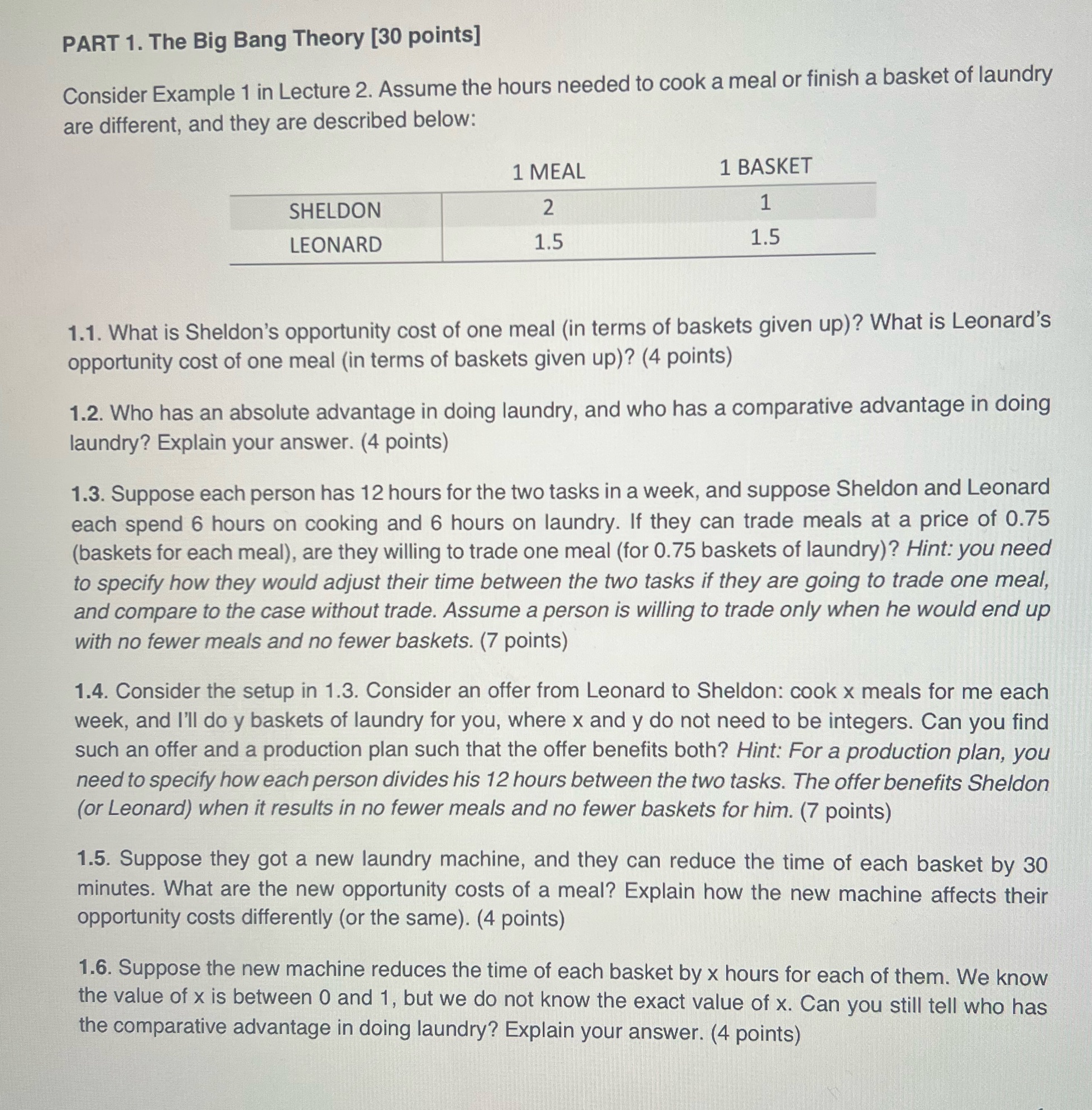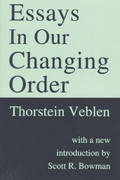I need help with question 1.4
PART 1. The Big Bang Theory [30 points] Consider Example 1 in Lecture 2. Assume the hours needed to cook a meal or finish a basket of laundry are different, and they are described below: 1 MEAL 1 BASKET SHELDON LEONARD 1.1. What is Sheldon's opportunity cost of one meal (in terms of baskets given up)? What is Leonard's opportunity cost of one meal (in terms of baskets given up)? (4 points) 1.2. Who has an absolute advantage in doing laundry, and who has a comparative advantage in doing laundry? Explain your answer. (4 points) 1.3. Suppose each person has 12 hours for the two tasks in a week, and suppose Sheldon and Leonard each spend 6 hours on cooking and 6 hours on laundry. If they can trade meals at a price of 0.75 (baskets for each meal), are they willing to trade one meal (for 0.75 baskets of laundry)? Hint: you need to specify how they would adjust their time between the two tasks if they are going to trade one meal, and compare to the case without trade. Assume a person is willing to trade only when he would end up with no fewer meals and no fewer baskets. (7 points) 1.4. Consider the setup in 1.3. Consider an otter from Leonard to Sheldon: cook x meals for me each week, and I'll do y baskets of laundry for you, where x and y do not need to be integers. Can you find such an offer and a production plan such that the offer benefits both? Hint: For a production plan, you need to specify how each person divides his 12 hours between the two tasks. The offer benets Sheldon (or Leonard) when it results in no fewer meals and no fewer baskets for him. (7 points) 1.5. Suppose they got a new laundry machine, and they can reduce the time of each basket by 30 minutes. What are the new opportunity costs of a meal? Explain how the new machine affects their opportunity costs differently (or the same). (4 points) 1.6. Suppose the new machine reduces the time of each basket by x hours for each of them. We know 4 the value of x lS between 0 and 1, but we do not know the exact value of x. Can you still tell who has _ the comparative advantage in doing laundry? Explain your answer. (4 points)







